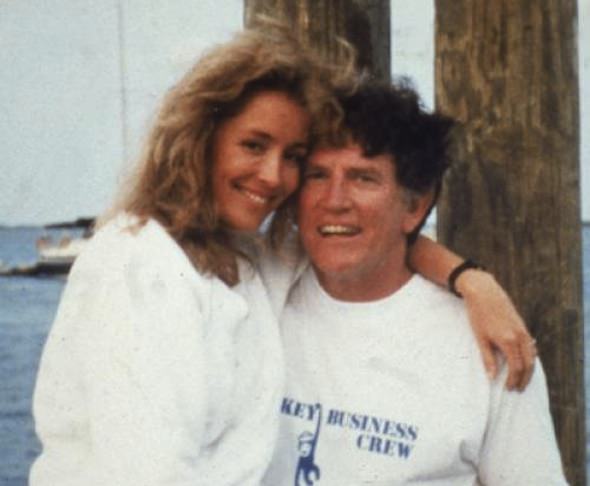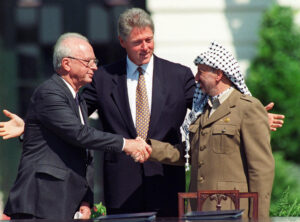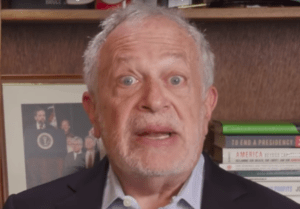Gary Hart, Harbinger of a New Political Age
Had Bill Clinton heeded the glaring signs of the sea change ushered in by that now-infamous scene from a boat in Bimini called the Monkey Business in the spring of 1987, he could have spared himself, not to mention the rest of the country, a big hassle during his presidency.
Had Bill Clinton heeded the glaring signs of the sea change ushered in by that now-infamous scene from a boat in Bimini called the Monkey Business in the spring of 1987, he could have spared himself, not to mention the rest of the country, a big hassle during his presidency.
Matt Bai in this weekend’s New York Times Magazine convincingly pegs onetime presidential hopeful Gary Hart, whose fate was irreversibly decided on the Monkey Business because of his exposed extramarital relationship with model Donna Rice, as the bellwether of a new political era — and not in a good way:
The Hart episode is almost universally remembered as a tale of classic hubris. A Kennedy-like figure on a fast track to the presidency defies the media to find anything nonexemplary in his personal life, even as he carries on an affair with a woman half his age and poses for pictures with her, and naturally he gets caught and humiliated. How could he not have known this would happen? How could such a smart guy have been that stupid?
Of course, you could reasonably have asked that same question of the three most important political figures of Hart’s lifetime, all Democratic presidents thought of as towering successes. Franklin Roosevelt, John Kennedy and Lyndon Johnson were adulterers, before and during their presidencies, and we can safely assume they had plenty of company. In his 1978 memoir, Theodore White, the most prolific and influential chronicler of presidential politics in the last half of the 20th century, wrote that he was “reasonably sure” that of all the candidates he had covered, only three — Harry Truman, George Romney and Jimmy Carter — hadn’t enjoyed the pleasure of “casual partners.” He and his colleagues considered those affairs irrelevant.
By the late 1980s, however, a series of powerful, external forces in the society were colliding, creating a dangerous vortex on the edge of our politics. Hart didn’t create that vortex. He was, rather, the first to wander into its path.
Added to the volatile mix of contributing factors to Hart’s downfall, Bai argues, were shifting social mores and a new generation of journalists trained in post-Watergate America, eager for their big breaks and not inclined to view the personal affairs of powerful politicians as irrelevant to their public stature. Hart also played a considerable role by inviting scrutiny with his tossed-off invitation to an already suspicious press corps: “Follow me around,” an apparently overconfident Hart challenged just days before the scandal broke. “I don’t care. I’m serious. If anybody wants to put a tail on me, go ahead. They’ll be very bored.”
Wrong. It didn’t take long at all for The Miami Herald to get the scoop on Hart’s dalliance with Rice, thanks to a formerly anonymous tipster named in Bai’s piece. Whether Hart would actually have clinched the 1988 election may be up for dispute, but the fact that in that incident he lost his chance to win is not.
And Clinton himself was wrong again in neglecting, or refusing, to recognize that for Washington’s top elected officials and those jostling to join their ranks, the term “behind closed doors” no longer applied to them — even in those quaint years before YouTube.
–Posted by Kasia Anderson
Your support matters…Independent journalism is under threat and overshadowed by heavily funded mainstream media.
You can help level the playing field. Become a member.
Your tax-deductible contribution keeps us digging beneath the headlines to give you thought-provoking, investigative reporting and analysis that unearths what's really happening- without compromise.
Give today to support our courageous, independent journalists.





You need to be a supporter to comment.
There are currently no responses to this article.
Be the first to respond.